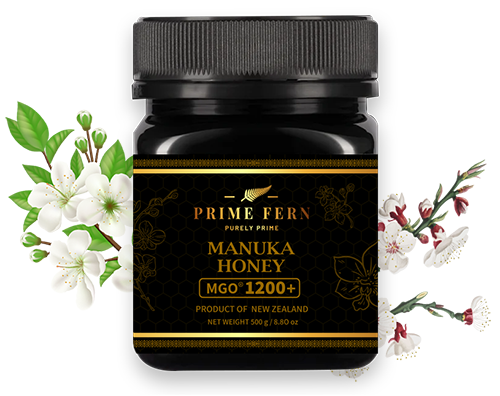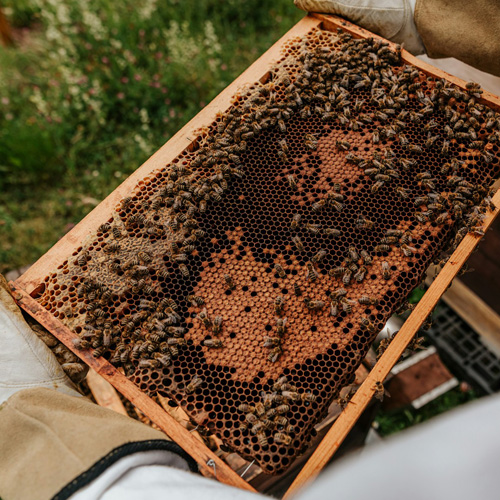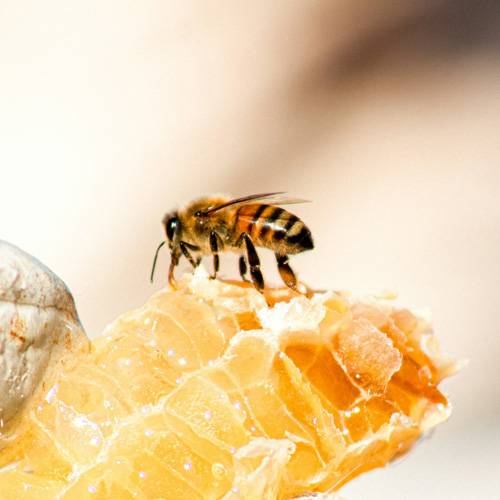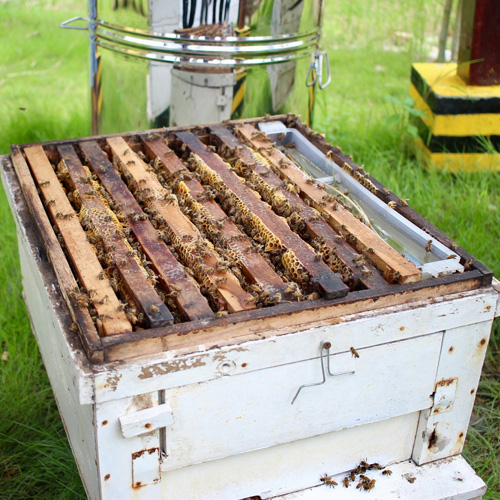Latest Articles

Prime Fern Honey
Prime Fern honey is a lovely honey with a silky, light, sweet floral taste. A member of the myrtle family, otherwise known as tea-tree, Prime Fern honey is mānuka’s shy cousin, and one of New Zealand’s best-kept secrets.
Research indicates that Kanuka has high levels of hydrogen peroxide and unique anti-inflammatory properties. This research suggests it may be an effective treatment for skin conditions such as rosacea, cold sores, and actinic keratosis.
Prime Fern honey can be applied topically, straight from the jar, or used as a fragrant face mask.

Introducing Manuka Honey Powder
Manuka Honey Powder, now you can say goodbye to refined sugar and instead use honey in so many different ways! Everyone is so excited about this product and we are so proud to bring this to you and even better on our birthday:)
This fantastic refined sugar alternative is great for so many uses we couldn't name them all here and we simply don't know all of them as we are still learning ourselves, but imagine sprinkling some manuka honey over your morning cereal, or into your morning coffee or tea, you can even make an instant honey drink simply add hot water maybe a squeeze of lemon for a delicious honey and lemon drink. Our kids love it sprinkled over there popcorn and we even sprinkle it over fruit and nuts. Fantastic for use in cooking where you couldn't normally use honey think baking, stir-frys meat rubs and one of our favorites when we were creating this was instead of brown sugar we sprinkled manuka honey powder over fish just before we popped it into the smoker. Really the true benefits of this product are still being discovered. Order yours now at this amazing introduction price and start discovering recipes of your own.
Please Note its best this product is stored in low temperature ideally and recommended to use the fridge to ensure its powder form.

The Art of Beekeeping
A Beginner's Guide: Dive into the ancient craft of beekeeping and discover the essentials of starting your own hive. Learn about hive management, bee behavior, and the importance of sustainable beekeeping practices for preserving bee populations and supporting ecosystem health.
Beekeeping, often referred to as apiculture, is an ancient craft that has been practiced for thousands of years. It not only provides an opportunity for honey production but also plays a vital role in pollination and ecosystem health. If you're interested in starting your own hive and becoming a beekeeper, this beginner's guide will help you understand the essentials of beekeeping, including hive management, bee behavior, and the importance of sustainability.

Understanding Bee Behavior
Bees are highly social insects that live in colonies organized around a queen bee, worker bees, and drones. Understanding bee behavior is crucial for successful beekeeping.
Worker bees are responsible for foraging, caring for the brood, and maintaining the hive. Drones are male bees whose primary role is to mate with the queen. The queen bee is the sole reproductive female in the colony.
Bees communicate through complex behaviors such as dancing and pheromone release. These behaviors help them coordinate tasks and navigate their environment.

Hive Management
Hive management involves regular inspections of the hive to ensure the health and productivity of the colony. During inspections, beekeepers check for signs of disease, pests, and adequate food stores.
Beekeepers also monitor honey production and may harvest surplus honey when conditions are favorable. Proper hive management techniques promote colony health and honey production.

Starting Your Own Hive
Before starting your own hive, it's essential to research local regulations and obtain any necessary permits or licenses. You'll also need to invest in the proper equipment, including hives, protective clothing, and beekeeping tools.
When selecting a location for your hive, choose a site that provides access to forage and protection from harsh weather conditions. Ensure that the hive is placed off the ground and in a location where it won't disturb neighbors or pose a safety risk.

Sustainable Beekeeping Practices
Sustainable beekeeping practices are essential for preserving bee populations and supporting ecosystem health. These practices include avoiding the use of harmful pesticides, providing access to diverse forage sources, and minimizing stress on the bees during hive management.
Beekeepers can also contribute to pollinator conservation efforts by planting pollinator-friendly flowers and supporting initiatives to protect natural habitats.

Joining a Beekeeping Community
Beekeeping is a rewarding but challenging endeavor, especially for beginners. Consider joining a local beekeeping club or community to connect with experienced beekeepers, share knowledge, and access resources and support.
By diving into the art of beekeeping with a commitment to sustainable practices and a respect for bee behavior, you can embark on a fulfilling journey as a beekeeper. Not only will you enjoy the sweet rewards of honey production, but you'll also play a vital role in preserving bee populations and supporting the health of our planet's ecosystems.

The Journey of Manuka Honey
From Hive to Jar: Take a behind-the-scenes look at the journey of Manuka honey, from the pristine landscapes where the Manuka tree flourishes to the meticulous harvesting, processing, and testing procedures that ensure the purity and potency of every jar of NZ Pure Manuka Honey.

Unlocking the Health Benefits of Manuka Honey
Explore the science behind Manuka honey's unique medicinal properties and learn about its proven health benefits, from immune support and wound healing to digestive health and skincare. Discover how incorporating Manuka honey into your daily routine can promote overall wellness and vitality.
